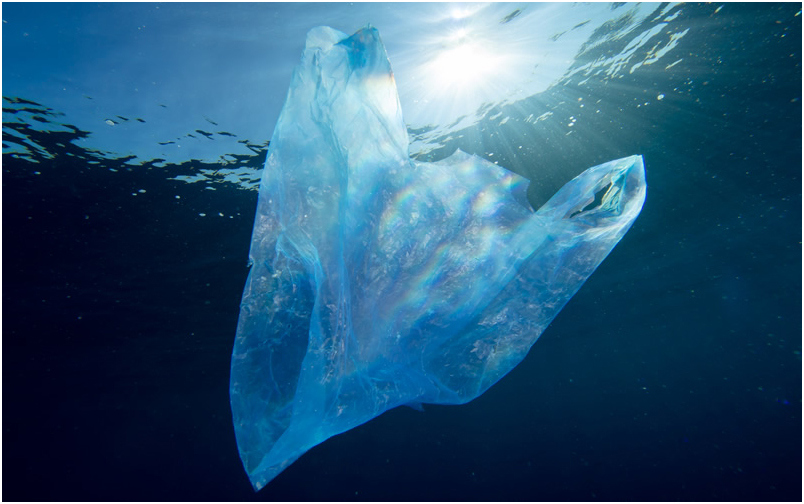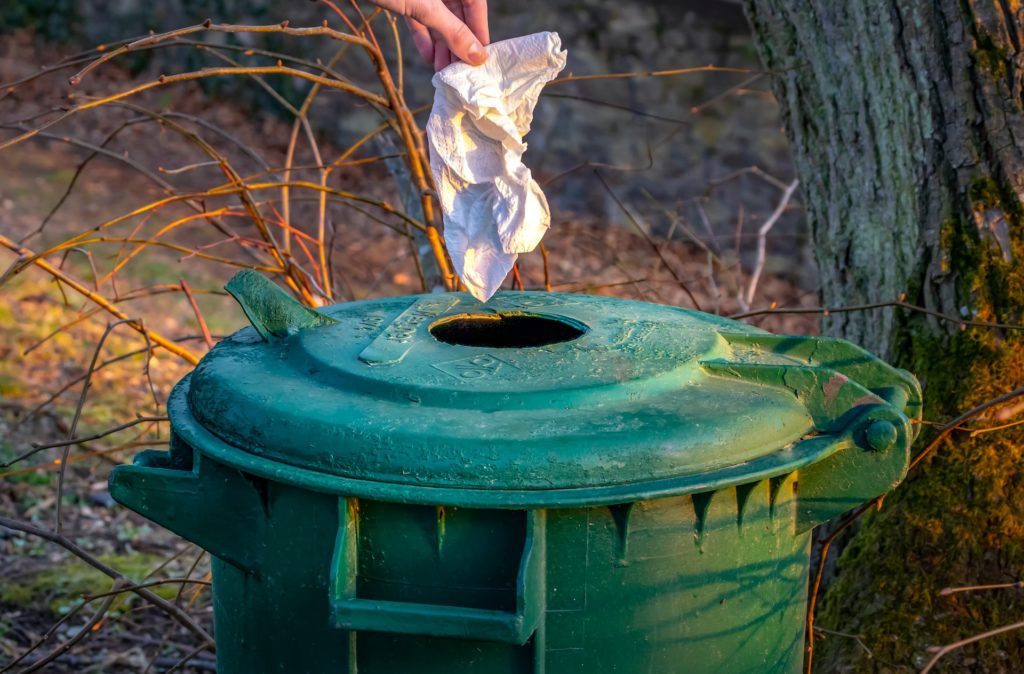
04 Jun 10 Reasons Why Plastic Bags Should Be Banned
Impact of Plastic Bags on the Environment

Plastic bags are a convenient way to carry our purchased goods when we go shopping. They are a part of our modern lives, and we don’t tend to think much about them. However, this convenience of plastic shopping bags carries with it a very high cost to the environment and also negatively affects human health.
Because there are so many negative impacts from the use of plastic shopping bags, many cities and countries from around the world have already put plastic bag bans in place. The following are a number of reasons why local and national governments should consider instituting bans on plastic bags. Find out what is the impact of plastic bags on the environment.
1. Plastic bags pollute our land and water.
Because they are so lightweight, plastic bags can travel long distances by wind and water. They litter our landscapes, get caught in fences and trees, float around in waterways, and can eventually make their way into the world’s oceans.
2. Plastic bags are made from non-renewable resources and contribute to climate change.
The majority of plastic bags are made of polypropylene, a material that is made from petroleum and natural gas. Both of these materials are non-renewable fossil fuel-based resources and through their extraction and production, they create greenhouse gases, which contribute to global climate change.
The production of these bags is also very energy-intensive. To produce nine plastic bags, it takes the equivalent energy to drive a car one kilometer (more than 0.5 miles).
Using these non-renewable resources to make plastic bags is very short-sighted, considering that the typical useful life of each plastic bag is about 12 minutes [1].
3. Plastic bags never break down.
Petroleum-based plastic bags do not truly degrade. What does occur is that when out in the environment, the plastic breaks up into tiny little pieces that end up in the ocean to be consumed by wildlife? Today, there are an estimated 46,000-1,000,000 plastic fragments floating within every square mile of our world’s oceans [2].
4. Plastic bags are harmful to wildlife and marine life.
Plastic bags and their associated plastic pieces are often mistaken for food by animals, birds, and marine life like fish and sea turtles. The consumed plastic then congests the digestive tracts of these animals and can lead to health issues such as infections and even death by suffocation. Animals can also easily become entangled in this plastic [2].
5. Plastic bags are harmful to human health.
Plastic fragments in the ocean such as those from plastic bags can absorb pollutants like PCBs (polychlorinated biphenyl) and PAHs (Polycyclic aromatic hydrocarbons), which are known to be hormone-disrupting chemicals [1]. When marine organisms consume plastics in our oceans, these chemicals can make their way through the ocean’s food web and then into humans who eat fish and other marine organisms.
6. Plastic bags are costly to pay for and to clean up after.
While we may not pay for plastic bags directly when we go shopping, they are anything but “free.” Plastic bags cost about 3-5 cents each, and that cost is then incorporated into prices of the items sold at stores. The cost of plastic bag cleanup is about 17 cents per bag, and on average, taxpayers end up paying about $88 per year just on plastic bag waste. So that “free” plastic bag isn’t so free after all.
7. Plastic bags are not easy to recycle.
As plastic bags tend to get caught in recycling machinery, most recycling facilities do not have the capacity to recycle plastic bags and therefore do not accept them. As a result, the actual recycling rate for plastic bags is about 5%.
8. Plastic bags have external costs.
Beyond the costs associated with the production and purchasing of plastic bags by retailers, there are many external costs that are often not considered. These costs include the true environmental costs of resource extraction and depletion, quality of life loss, economic loss from littering, and wildlife loss. Sadly, such costs are typically not included in most economic analyses, but nonetheless, these negative impacts are very real.
9. There are better alternatives available, and jobs to go with them!
Once a person gets into the habit of bringing reusable bags when shopping, it is not much of an inconvenience at all. Reusable shopping bags are very durable and can be reused many times over the course of their useful life. The manufacturing of reusable bags is also another opportunity to create sustainable products and the jobs that go with them.
10. Other governments are banning plastic bags, so yours should too… or at least make people pay for them.
To date, more than 40 countries and municipalities around the world have instituted plastic bag bans. The United Nations Environmental Programme Secretariat has recommended a ban on all plastic bags globally.
For those governments that are opposed to full bans on plastic bags, another option is to institute a plastic bag tax, where consumers would pay a small fee for each plastic bag. This strategy has been proven to greatly reduce plastic bag usage by consumers.
In Ireland, where this fee was instituted in 2002, plastic bag usage has been decreased by about 90% [3]. Several other countries and cities are now also considering such a tax, including the UK, Australia, and New York City.
For those governments that are opposed to full bans on plastic bags, another option is to institute a plastic bag tax, where consumers would pay a small fee for each plastic bag. This strategy has been proven to greatly reduce plastic bag usage by consumers.
In Ireland, where this fee was instituted in 2002, plastic bag usage has been decreased by about 90% [3]. Several other countries and cities are now also considering such a tax, including the UK, Australia and New York City.
To know more about the impact of plastic bags on the environment, contact us now!

No Comments